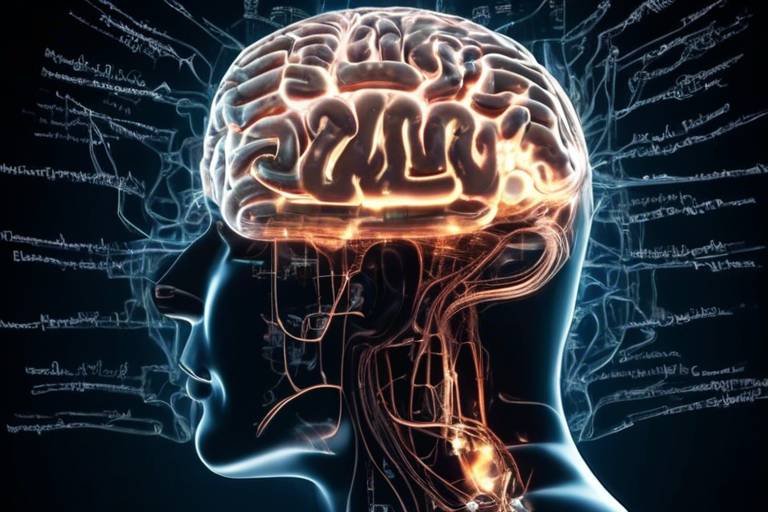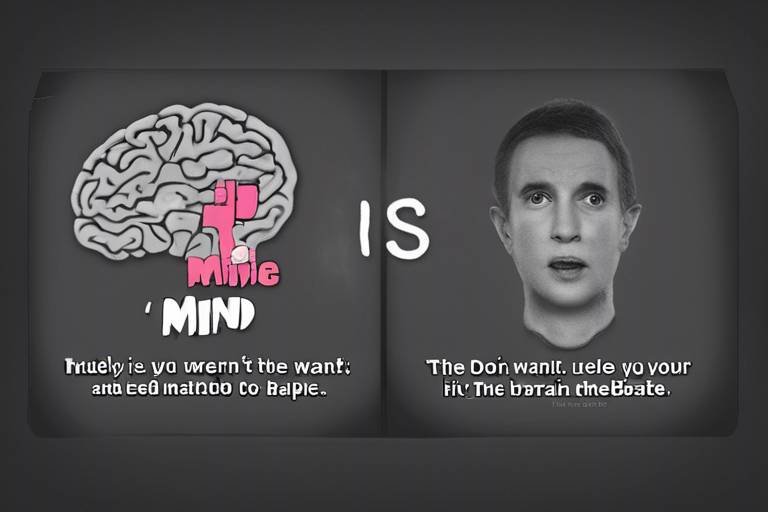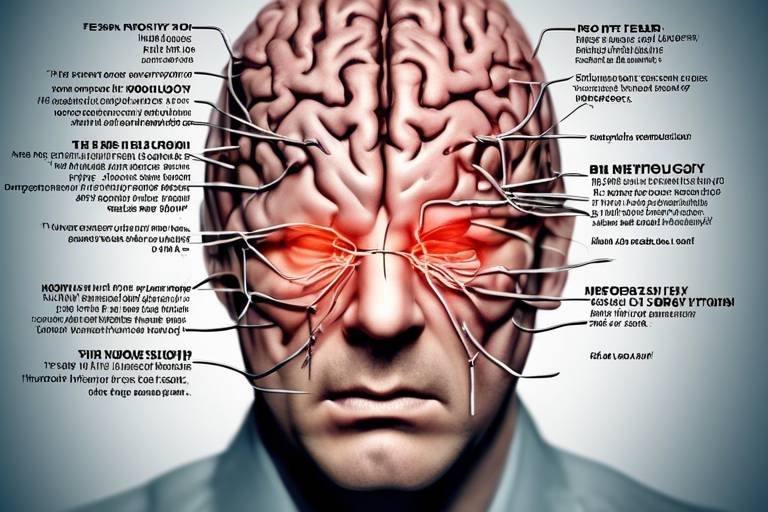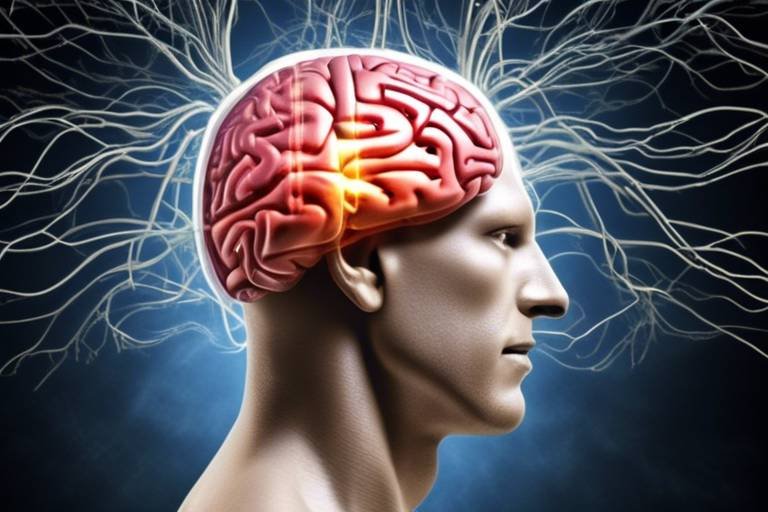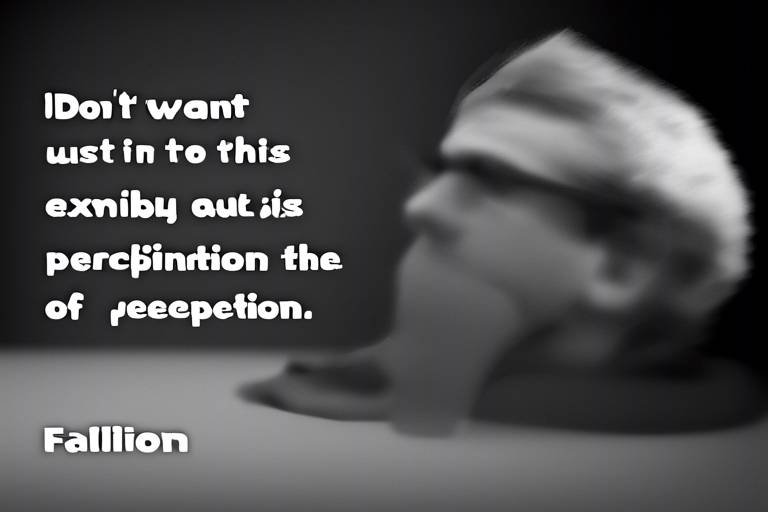The Mind-Body Problem - Philosophers' Take
The mind-body problem is one of the most fascinating and perplexing issues in philosophy, captivating thinkers for centuries. At its core, this problem grapples with the relationship between our mental states—our thoughts, feelings, and consciousness—and the physical processes of our bodies. Imagine for a moment that your mind is like a software program running on the hardware of your brain. How do these two distinct entities interact? Can one exist without the other? These questions have sparked a myriad of philosophical debates, leading to various schools of thought that attempt to decode the intricate dance between mind and body.
From ancient philosophers like Aristotle, who pondered the essence of being and existence, to the groundbreaking ideas of René Descartes, who famously declared, "I think, therefore I am," the exploration of the mind-body relationship has evolved dramatically. Each perspective offers unique insights, yet none seem to provide a definitive answer. As we navigate through this philosophical landscape, we uncover not only the complexities of consciousness but also the implications these theories have on our understanding of identity and existence. So, buckle up as we dive into the depths of dualism, physicalism, and functionalism—three pivotal frameworks that shape our understanding of the mind-body problem.
The roots of the mind-body problem stretch back to antiquity, where philosophers began to question the nature of reality and existence. Descartes introduced a radical idea in the 17th century, suggesting that the mind and body are two distinct substances. This concept laid the groundwork for contemporary discussions, influencing countless thinkers who followed. Aristotle's notion of the soul as the essence of life and Descartes' dualism opened a Pandora's box of questions surrounding consciousness. Understanding this historical context is crucial as it highlights how these foundational ideas continue to inform modern debates about the nature of consciousness and its connection to the physical world.
At the heart of the mind-body problem lies dualism, the philosophical stance asserting that the mind and body are fundamentally different substances. This perspective, particularly Cartesian dualism, posits that the mind is a non-physical entity that exists independently of the body. Imagine a computer, where the software (mind) operates separately from the hardware (body). This analogy illustrates the essence of dualism, suggesting that mental processes can exist without physical manifestation. However, this viewpoint raises significant challenges, especially regarding how these two distinct entities interact. If the mind is non-physical, how can it influence bodily actions? This question remains a cornerstone of philosophical inquiry.
René Descartes' vision of dualism presents a compelling yet contentious framework for understanding consciousness. He argued that the mind, being immaterial, could not be reduced to physical processes. However, this raises critical questions about interaction and causation. How does a thought, an immaterial event, cause a physical action, like raising a hand? This dilemma has led to considerable debate within contemporary philosophy. While Cartesian dualism offers a profound insight into the nature of consciousness, it struggles to account for the intricate workings of the brain, as modern neuroscience unveils the complexities of mental states.
Critics of dualism argue that it fails to adequately explain the physical processes underlying mental states. For instance, how can we reconcile the dualist perspective with the advances in neuroscience that demonstrate clear correlations between brain activity and mental experiences? The problem of interaction poses a significant challenge: if the mind and body are separate, how do they communicate? These critiques have prompted philosophers to rethink the validity of dualism in light of scientific discoveries that suggest a more integrated understanding of mind and body.
Despite the critiques, some modern philosophers have proposed refined dualist theories that seek to bridge the gap between dualism and scientific findings. These contemporary perspectives attempt to reconcile the idea of a non-physical mind with the observable phenomena of brain activity. By exploring concepts like property dualism, which suggests that mental properties are distinct yet emerge from physical processes, these theories offer a fresh lens through which to view the mind-body relationship. They challenge the traditional dualist framework while still preserving the essence of a non-physical consciousness.
On the other end of the spectrum lies physicalism, a philosophical stance asserting that everything, including mental states, is ultimately physical. This perspective posits that our thoughts, feelings, and consciousness can be fully explained through physical processes in the brain. Imagine a complex machine where every action and reaction can be traced back to its components. Physicalism challenges dualism by suggesting that there is no need for a separate non-physical entity to explain consciousness. However, this view also faces significant challenges, particularly regarding the subjective nature of experiences. How can we account for the richness of personal experience within a purely physical framework?
Another intriguing perspective is functionalism, which posits that mental states are defined by their functional roles rather than their physical composition. According to this view, what matters is not the substance of the mind but how it functions within a system. For instance, just as a computer can run different software regardless of its hardware, our minds can exhibit various mental states based on their functions. This approach opens up new avenues for understanding consciousness and its relationship to the brain, emphasizing the importance of causation and interaction in defining mental states.
Various theories of functionalism propose that mental states can be understood in terms of their causal relations. Prominent functionalist theories, such as machine functionalism and role functionalism, explore how mental processes operate within a network of interactions. These theories contribute significantly to the ongoing discourse surrounding the mind-body problem, offering innovative frameworks that challenge traditional notions of identity and consciousness.
Despite its appeal, functionalism faces significant critiques, particularly regarding its ability to account for subjective experiences. Critics argue that functionalism overlooks the qualitative aspects of consciousness, often referred to as the qualia. How can a purely functional account capture the rich tapestry of human experience? This ongoing debate highlights the complexities of understanding consciousness and the limitations of various philosophical frameworks.
- What is the mind-body problem? The mind-body problem explores the relationship between mental states and physical processes, questioning how they interact and influence each other.
- What is dualism? Dualism posits that the mind and body are fundamentally different substances, with the mind being non-physical and separate from the physical body.
- What are the critiques of dualism? Critics argue that dualism fails to explain how the mind and body interact and does not account for the advances in neuroscience that link mental states to physical processes.
- What is physicalism? Physicalism asserts that everything, including mental states, is ultimately physical and can be explained through physical processes in the brain.
- What is functionalism? Functionalism defines mental states by their functional roles rather than their physical composition, suggesting that what matters is how they operate within a system.

Historical Background
The mind-body problem is not just a modern conundrum; it has deep historical roots that stretch back to ancient philosophy. Think about it: how long have humans pondered the nature of existence and consciousness? Philosophers like René Descartes and Aristotle laid the groundwork for the debates we engage in today. Descartes famously declared, "Cogito, ergo sum" ("I think, therefore I am"), suggesting that the act of thinking is proof of existence. This idea sparked a firestorm of inquiry into the nature of the mind and its separation from the body. On the other hand, Aristotle took a more integrated approach, viewing the mind and body as interconnected, which paved the way for a more holistic understanding of human existence.
As we trace the evolution of thought on this subject, we see a rich tapestry of ideas that have influenced contemporary discussions. The mind-body problem essentially asks: How do our mental states relate to our physical states? Are they two sides of the same coin, or are they fundamentally different entities? These questions have led to various philosophical movements and theories over the centuries. For instance, the emergence of dualism in the 17th century presented a stark contrast to the more unified perspectives of earlier thinkers. Dualism posits that the mind and body are distinct substances, each with its own properties. This view raised questions about how these two realms interact, a dilemma that continues to challenge philosophers today.
Moreover, the rise of modern science and advances in neuroscience have further complicated the landscape. As we learn more about the brain's physical processes, the relationship between mind and body becomes even more intricate. The historical context of these discussions is crucial for understanding the depth of the mind-body problem. It illustrates the ongoing struggle between philosophical inquiry and scientific discovery, revealing how each has shaped our understanding of consciousness and identity.
In summary, the historical background of the mind-body problem is a complex interplay of ideas and theories that have evolved over time. From the dualistic perspectives of Descartes to the more integrated views of Aristotle, each philosophical stance has contributed to our current understanding. As we navigate through these historical waters, we uncover the foundational questions that continue to drive the discourse on consciousness and existence today.

Dualism
Dualism is a fascinating philosophical perspective that suggests the mind and body are fundamentally different substances. Imagine for a moment that your mind is like a software program running on a computer (your body). While the program (mind) can perform various tasks and functions, it operates independently from the hardware (body) it runs on. This analogy captures the essence of dualism, particularly in the context of Cartesian dualism, which is named after the renowned philosopher René Descartes.
Descartes famously declared, "Cogito, ergo sum" or "I think, therefore I am," emphasizing the existence of the self as a thinking entity. This assertion leads us to ponder: if the mind is indeed a separate entity, how does it interact with the physical body? Descartes proposed that this interaction occurs in the pineal gland, a small organ in the brain. However, this raises a multitude of questions regarding causation and interaction—how can a non-physical mind influence a physical body, and vice versa?
One of the strengths of dualism lies in its intuitive appeal. It aligns with our everyday experiences where we feel emotions, thoughts, and consciousness that seem distinct from our physical being. Yet, as modern philosophy and science have progressed, dualism has faced significant challenges. For instance, advancements in neuroscience have illuminated the intricate workings of the brain, suggesting that mental states may be closely tied to physical processes. This leads to a critical examination of dualism's validity in explaining consciousness.
Critics of dualism often point out that it fails to account for the physical processes underlying mental states. Consider the following objections:
- Problem of Interaction: If the mind and body are separate, how do they communicate? This question remains a significant hurdle for dualist theories.
- Advances in Neuroscience: With the growing understanding of brain functions, many argue that mental states can be fully explained by physical processes, undermining the dualist position.
Despite these critiques, some modern philosophers have sought to refine dualist theories. They argue that while the mind may be non-physical, it interacts with the body in ways that could be compatible with scientific findings. For instance, some propose that dualism can be reconciled with quantum mechanics, suggesting that consciousness might arise from quantum processes in the brain. This perspective opens up exciting avenues for further exploration, but it also invites skepticism from those who advocate for a more empirically grounded understanding of consciousness.
In summary, dualism presents a compelling framework for understanding the relationship between mind and body, yet it grapples with profound challenges posed by contemporary science and philosophy. As we delve deeper into the intricacies of consciousness, the dialogue surrounding dualism continues to evolve, inviting us to reconsider our assumptions about the nature of reality itself.

Cartesian Dualism
René Descartes, a towering figure in philosophy, introduced the concept of Cartesian dualism in the 17th century, positing that the mind and body are fundamentally distinct entities. This view raises intriguing questions about the nature of consciousness and its relationship to the physical body. Imagine your mind as a software program running on a computer; the program (your thoughts, feelings, and consciousness) is separate from the hardware (your brain and body). This analogy captures the essence of Cartesian dualism, where the mind is seen as a non-physical substance that interacts with the physical world.
One of the most compelling aspects of Cartesian dualism is its ability to explain the subjective experience of consciousness. Descartes famously declared, "I think, therefore I am," emphasizing the undeniable reality of thought and awareness. This assertion implies that our mental states are not merely byproducts of physical processes but rather exist in a realm of their own. Yet, this raises a crucial question: if the mind is non-physical, how does it interact with the body? This interaction problem remains a significant challenge for dualism.
Despite its historical significance, Cartesian dualism faces numerous critiques in modern philosophy. Critics argue that it struggles to account for the intricate relationship between mental states and brain activity. For instance, advancements in neuroscience have illustrated that specific brain regions correlate with particular thoughts and emotions. This evidence suggests a more intertwined relationship between mind and body than dualism allows. Furthermore, the question of causation looms large: if the mind can influence the body (e.g., deciding to move your arm), how does this interaction occur if they are fundamentally different substances?
To illustrate the complexities of Cartesian dualism, consider the following table that summarizes its strengths and weaknesses:
| Strengths | Weaknesses |
|---|---|
| Explains subjective experiences of consciousness | Fails to explain interaction between mind and body |
| Respects the uniqueness of mental states | Challenges from neuroscience |
| Offers a clear distinction between mental and physical | Vulnerable to critiques regarding causation |
In contemporary discussions, some philosophers attempt to refine Cartesian dualism by proposing hybrid models that integrate insights from neuroscience while preserving the distinctiveness of mental states. These modern dualist theories aim to bridge the gap between the mind and body, suggesting that while they may be different in substance, they are not entirely separate in function. This ongoing dialogue illustrates the enduring relevance of Cartesian dualism in contemporary philosophy, inviting us to ponder the profound mysteries of consciousness and identity.

Critiques of Dualism
The concept of dualism, while historically significant and intellectually stimulating, has faced a barrage of critiques that challenge its fundamental tenets. One of the most pressing issues is the problem of interaction. If the mind and body are indeed separate substances, how do they influence each other? This question has puzzled philosophers and scientists alike. For instance, when you decide to move your arm, how does a non-physical mind cause a physical action in the body? This interaction problem raises serious doubts about the validity of dualism as an explanatory framework.
Moreover, advances in neuroscience have provided compelling evidence that mental states are closely tied to physical processes in the brain. Studies using neuroimaging techniques have shown that specific thoughts, emotions, and experiences correspond with particular brain activity. This correlation suggests that mental phenomena are not merely epiphenomena of a non-physical mind but are instead deeply rooted in the physical workings of the brain. Critics argue that dualism fails to account for these findings, leading to a growing preference for more integrated theories that align mental states with physical processes.
Another significant critique arises from the challenge of explaining consciousness. Dualists often struggle to provide a satisfactory account of how consciousness arises from a non-physical substance. Theories of consciousness, such as those proposed by physicalists, often emphasize the role of neural networks and brain functions. In contrast, dualism leaves many questions unanswered, particularly regarding the nature of subjective experience. How can something non-physical give rise to the rich tapestry of human experience, with its emotions, thoughts, and sensations?
Furthermore, critics point out that dualism can lead to a form of epistemic isolation. If the mind is considered entirely separate from the body, it raises questions about how we can gain knowledge about mental states. This separation can create a disconnect between our understanding of consciousness and the scientific inquiry into the brain, potentially hindering advancements in both philosophy and neuroscience.
Lastly, the rise of neurophilosophy has provided a robust alternative to dualism by emphasizing the importance of biological processes in understanding the mind. This approach integrates insights from both neuroscience and philosophy, offering a more holistic view of consciousness that dualism struggles to achieve. In this light, dualism appears increasingly outdated, as contemporary discussions focus on more empirically grounded theories that account for the intricate relationship between the mind and body.
In summary, while dualism has played an essential role in the history of philosophy, its critiques highlight significant shortcomings that challenge its viability as a comprehensive explanation for the mind-body relationship. As we continue to explore the mysteries of consciousness, the dialogue between dualism and its critics will undoubtedly remain a vibrant and evolving discourse.
- What is dualism? Dualism is the philosophical position that the mind and body are fundamentally different substances, with the mind being non-physical and the body being physical.
- What are the main critiques of dualism? Major critiques include the problem of interaction, the challenge of explaining consciousness, and the evidence from neuroscience that suggests a close relationship between mental states and brain processes.
- How does physicalism differ from dualism? Physicalism asserts that everything, including mental states, is ultimately physical, while dualism maintains a distinction between the mind and body.
- What is neurophilosophy? Neurophilosophy is an interdisciplinary approach that combines insights from neuroscience and philosophy to better understand the nature of the mind and consciousness.

Contemporary Dualist Theories
In the realm of philosophy, the mind-body problem has sparked a myriad of debates, particularly around the concept of dualism. While traditional dualism, as proposed by René Descartes, has faced significant critiques, contemporary dualist theories have emerged, aiming to address the challenges posed by advancements in neuroscience and philosophy. These modern interpretations seek to reconcile the dualist perspective with empirical findings, offering new insights into the complex relationship between mental states and physical processes.
One of the most notable contemporary dualist theories is known as property dualism. This perspective posits that while there is only one kind of substance—physical—there exist two distinct kinds of properties: physical properties and mental properties. In this view, mental states are seen as emergent properties of complex physical systems, such as the human brain. This framework allows for a nuanced understanding of consciousness, where mental experiences are acknowledged without completely separating them from their physical substrates.
Another significant contribution to contemporary dualism comes from non-reductive physicalism. Proponents of this theory argue that mental states cannot be fully explained by physical processes alone, even though they are ultimately rooted in physical reality. Non-reductive physicalists assert that mental phenomena have their own unique properties and laws, which cannot be reduced to mere physical explanations. This perspective opens the door for a more integrated approach, where both mental and physical aspects are considered essential in understanding human consciousness.
Moreover, some contemporary dualist thinkers have introduced the concept of interactionist dualism, which attempts to address one of the most pressing critiques of Cartesian dualism: the problem of interaction. This theory proposes that while the mind and body are distinct, they can interact in meaningful ways. For example, emotions can influence physiological responses, such as stress leading to increased heart rate. This interactionist approach provides a framework for understanding how mental states can have tangible effects on the physical body, thus bridging the gap between the two realms.
However, even within contemporary dualist theories, challenges remain. Critics argue that while these theories attempt to integrate dualism with scientific findings, they may still fall short in providing a comprehensive explanation for consciousness. The ongoing dialogue among philosophers continues to explore whether these modern interpretations can adequately account for the rich tapestry of human experience. As the field of neuroscience progresses, the relationship between mental and physical states remains a hotbed of inquiry and debate, pushing the boundaries of our understanding of consciousness and identity.
In conclusion, contemporary dualist theories represent a significant evolution in the discourse surrounding the mind-body problem. By acknowledging the complexities of mental states and their relationship to physical processes, these theories offer a fresh perspective that seeks to harmonize philosophical inquiry with scientific advancements. As we continue to explore these ideas, the quest for understanding consciousness remains an exciting and dynamic field, inviting further exploration and debate.

Physicalism
Physicalism is a fascinating philosophical perspective that asserts everything that exists, including our mental states, is fundamentally physical. In simpler terms, it posits that all phenomena, including thoughts, emotions, and consciousness, can be explained through physical processes and interactions. Imagine a complex machine; every component works together to create the whole. Similarly, physicalism suggests that our minds are like intricate gears and levers, all operating within the framework of the physical universe.
One of the most compelling implications of physicalism is its challenge to traditional views of consciousness. If everything is physical, then how do we account for subjective experiences? This is where the debate heats up. Proponents of physicalism argue that consciousness arises from brain activity, a perspective supported by advances in neuroscience. For instance, when we think about a memory or feel an emotion, specific neural pathways are activated. This correlation raises intriguing questions: Is consciousness merely a byproduct of brain function, or does it hold a more profound significance?
To illustrate the core tenets of physicalism, consider the following key arguments:
- Reductionism: Physicalism often leans on reductionism, which suggests that complex phenomena can be understood by examining their simpler components. In the case of mental states, this means breaking down thoughts and feelings into their neurobiological underpinnings.
- Scientific Support: With the rise of neuroscience, many physicalists find validation in empirical research that links mental processes to brain activity. Imaging technologies, like fMRI, show us which areas of the brain are engaged during specific thoughts or emotions.
- Elimination of Dualism: Physicalism challenges dualist perspectives by arguing that there is no need to posit a separate, non-physical realm for the mind. Everything we experience can be explained through physical laws and interactions.
However, physicalism is not without its critics. Detractors argue that it struggles to fully explain the richness of subjective experiences, often referred to as "qualia." For instance, how do we account for the unique experience of seeing the color red or feeling joy? These subjective experiences seem to transcend mere physical interactions. Critics also point out that while we can map brain activity to certain thoughts, this does not necessarily explain the essence of those thoughts. It’s akin to knowing how a car engine works without understanding the experience of driving the car. This gap raises a crucial question: Can physicalism truly encapsulate the entirety of human consciousness?
In conclusion, physicalism presents a compelling framework for understanding the mind-body relationship, emphasizing the importance of physical processes in shaping our mental states. As we delve deeper into the realms of neuroscience and philosophy, the dialogue surrounding physicalism continues to evolve, challenging us to reconsider our understanding of consciousness and identity. The interplay between mind and body remains a rich field for exploration, inviting both agreement and dissent among scholars and thinkers alike.
- What is physicalism? Physicalism is the view that everything, including mental states, is ultimately physical and can be explained through physical processes.
- How does physicalism relate to consciousness? Physicalism posits that consciousness arises from brain activity and can be understood through neuroscience.
- What are the criticisms of physicalism? Critics argue that physicalism fails to account for subjective experiences or "qualia," which seem to transcend mere physical interactions.

Functionalism
Functionalism offers a fascinating lens through which to view the mind-body problem, suggesting that mental states are not defined by their physical makeup but rather by their functional roles within a system. Imagine a computer: it doesn’t matter whether it’s made of metal, plastic, or silicon; what matters is how it processes information. Similarly, functionalism posits that mental states can be understood by examining their causal relationships with inputs (like sensory experiences) and outputs (like behavior). This perspective shifts the focus from the substance of the mind to the function it serves, opening up new avenues for understanding consciousness.
At its core, functionalism argues that mental states are like the software of a computer. Just as software can run on different hardware, mental states can exist in different physical substrates. This means that a being could have a mind even if it’s not made of biological matter, leading to interesting discussions about artificial intelligence and the potential for machines to have mental experiences. This idea challenges traditional views and invites us to reconsider what it means to be conscious.
One of the most compelling aspects of functionalism is its ability to accommodate a wide range of mental phenomena. For instance, consider the following examples of mental states and their functional roles:
| Mental State | Function |
|---|---|
| Pain | Signals injury and prompts a response to avoid harm |
| Belief | Guides decision-making and influences behavior |
| Desire | Motivates action towards achieving goals |
This table illustrates how various mental states serve critical functions in guiding our actions and responses. However, while functionalism presents a robust framework for understanding mental states, it is not without its critiques. One significant challenge to functionalism is its ability to account for subjective experiences, also known as qualia. Critics argue that functionalism overlooks the qualitative aspects of mental states—like the unique experience of tasting chocolate or feeling joy—which cannot be fully captured by examining their functions alone.
Furthermore, some philosophers question whether functionalism can adequately explain the rich tapestry of human consciousness. Is it enough to say that a system functions a certain way, or do we need to consider the underlying experiences that shape those functions? This debate continues to fuel discussions in contemporary philosophy, as thinkers strive to reconcile functionalist theories with the deeply personal and subjective nature of mental experiences.
In conclusion, functionalism offers a compelling approach to the mind-body problem by emphasizing the roles and interactions of mental states rather than their physical properties. It invites us to rethink our understanding of consciousness and challenges us to explore the implications of mental states in various contexts, including artificial intelligence and cognitive science. As we delve deeper into the intricacies of the mind, functionalism remains a pivotal perspective in the ongoing discourse about what it means to think, feel, and be aware.
- What is functionalism in philosophy? Functionalism is a theory that posits mental states are defined by their functional roles rather than their physical composition.
- How does functionalism differ from dualism? While dualism suggests that the mind and body are separate substances, functionalism focuses on the functions of mental states within a system.
- Can machines have mental states according to functionalism? Yes, functionalism allows for the possibility that machines could possess mental states if they perform the relevant functions.
- What are the main critiques of functionalism? Critics argue that functionalism fails to account for subjective experiences and the qualitative aspects of consciousness known as qualia.

Functionalist Theories
Functionalist theories represent a fascinating approach to understanding the mind-body relationship, suggesting that mental states are defined not by their internal composition but by their functional roles within a broader system. Imagine a computer: it doesn’t matter what physical components make it up; what matters is how those components work together to process information. Similarly, functionalism posits that mental states like beliefs, desires, and emotions are characterized by their interactions and effects, rather than their physical substrates. This perspective allows for a more flexible understanding of consciousness, accommodating the idea that different entities—be they biological or artificial—can possess similar mental states as long as they fulfill the same functional roles.
One of the most prominent functionalist theories is the Multiple Realizability thesis. This idea suggests that a particular mental state can be realized in multiple ways across different systems. For instance, pain can be experienced by humans, animals, and even hypothetical intelligent robots, all of which might have entirely different physical structures. This flexibility is a significant strength of functionalism, as it opens the door for a broader understanding of consciousness that transcends biological limitations. In this way, functionalism aligns well with contemporary discussions in artificial intelligence and cognitive science, where the focus is increasingly on the functions performed by systems rather than their specific materials.
Another key aspect of functionalist theories is their emphasis on causal relations. Functionalists argue that what defines a mental state is its causal role in relation to other mental states and to behavior. For example, if someone sees a snake and feels fear, the mental state of fear is defined by its role in the context of the situation: it causes the person to react by fleeing, and it is influenced by the perception of the snake. This interconnectedness of mental states highlights the complexity of human cognition and emphasizes the dynamic nature of our mental lives.
However, while functionalism provides valuable insights, it is not without its challenges. Critics argue that functionalism may overlook the qualitative aspects of experiences—what philosophers call qualia. For instance, even if two individuals exhibit the same functional responses to pain, the subjective experience of that pain may differ dramatically. This raises the question: can a theory that focuses solely on functions adequately capture the richness of human consciousness? Such critiques are essential as they push functionalists to refine their theories and consider the subjective dimensions of mental states.
In summary, functionalist theories offer a compelling framework for understanding the mind-body problem by focusing on the roles and interactions of mental states rather than their physical underpinnings. By doing so, they provide a versatile lens through which we can explore consciousness, paving the way for new insights in both philosophy and cognitive science. As we continue to grapple with the complexities of the mind, functionalism remains a key player in the ongoing dialogue about what it means to think, feel, and be aware.
- What is functionalism in philosophy? Functionalism is a theory that views mental states as defined by their functional roles and interactions rather than their physical composition.
- How does functionalism relate to artificial intelligence? Functionalism suggests that if an artificial system can perform the same functions as a human mind, it could be said to have similar mental states.
- What are qualia? Qualia refer to the subjective, qualitative aspects of experiences, such as the way pain feels, which functionalism may struggle to account for.
- Can functionalism explain consciousness? While functionalism provides a framework for understanding consciousness through roles and relations, it faces challenges in addressing subjective experiences.

Critiques of Functionalism
Functionalism, while a compelling framework for understanding mental states, is not without its critics. One of the main challenges to functionalism is its apparent inability to account for the richness of subjective experience. Critics argue that functionalism reduces mental states to mere functions or roles, overlooking the qualitative aspects of consciousness, often referred to as the "what it's like" experience. This critique is famously encapsulated in Thomas Nagel's essay "What Is It Like to Be a Bat?", where he posits that no matter how well we understand the functional roles of a bat's brain, we cannot truly grasp what it is like to experience the world as a bat does.
Moreover, functionalism faces the challenge of the Chinese Room Argument, proposed by philosopher John Searle. In this thought experiment, Searle imagines a person inside a room who receives Chinese characters as input and uses a set of rules to produce appropriate responses in Chinese, without understanding the language. This scenario illustrates that functional (or syntactic) processing does not equate to genuine understanding or consciousness. Critics argue that if a system can simulate a mental state without actually experiencing it, then functionalism fails to capture the essence of what it means to be conscious.
Another significant critique stems from the notion of qualia, which refers to the individual instances of subjective, conscious experience. For instance, the experience of seeing the color red or tasting chocolate cannot be fully explained by functional roles alone. Critics contend that functionalism's focus on roles and behaviors neglects these intrinsic qualities of experience, leading to a potentially incomplete understanding of the mind. To illustrate this point, consider the following table that compares functionalism with qualia-centric perspectives:
| Aspect | Functionalism | Qualia-Centric Perspective |
|---|---|---|
| Definition of Mental States | Defined by their causal roles | Defined by subjective experience |
| Understanding Consciousness | Focuses on behavior and function | Focuses on internal qualitative experiences |
| Key Challenge | Subjective experience is overlooked | How to reconcile qualia with physical processes |
Additionally, critics argue that functionalism may lead to a form of reductionism, where complex mental phenomena are oversimplified to mere functions. This reduction can diminish the richness of human experience, as it implies that all mental states can be fully explained without considering the underlying biological and emotional contexts. For example, consider the difference between feeling happy due to a personal achievement versus feeling happy because of a beautiful sunset. While both may be categorized as 'happiness' in a functionalist framework, the depth and significance of these experiences are profoundly different.
In conclusion, while functionalism offers valuable insights into the relationship between mental states and their roles in behavior, it faces significant critiques concerning its ability to fully encompass the complexities of consciousness. These critiques highlight the ongoing philosophical debates surrounding the mind-body problem and the need for a more nuanced understanding of mental phenomena. As we continue to explore these ideas, it becomes increasingly clear that the quest to understand consciousness is far from over.
- What is functionalism in philosophy? Functionalism is a theory that considers mental states in terms of their functional roles rather than their physical composition.
- What are qualia? Qualia are the subjective, qualitative aspects of experiences, such as the redness of red or the taste of chocolate.
- What is the Chinese Room Argument? The Chinese Room Argument is a thought experiment that argues that functional processing does not equate to understanding or consciousness.
- Why is subjective experience a challenge for functionalism? Critics argue that functionalism overlooks the richness of subjective experiences, reducing them to mere functions.
Frequently Asked Questions
- What is the mind-body problem?
The mind-body problem is a philosophical inquiry into the relationship between mental states, such as thoughts and feelings, and physical states, like brain processes and bodily functions. It's a complex issue that raises questions about how our consciousness relates to the physical world.
- Who are the key philosophers associated with the mind-body problem?
Several philosophers have significantly contributed to the mind-body debate, with René Descartes being one of the most notable figures. His dualist perspective suggests that the mind and body are separate entities, a view that has influenced many contemporary discussions.
- What is dualism?
Dualism is the belief that the mind and body are fundamentally different substances. This theory posits that mental phenomena are non-physical and distinct from physical processes, leading to intriguing questions about how these two realms interact.
- What are the critiques of dualism?
Critics argue that dualism struggles to explain how non-physical mental states can influence physical actions and vice versa. Additionally, advancements in neuroscience challenge dualism by demonstrating the physical basis of many mental processes.
- What is physicalism?
Physicalism is the view that everything, including mental states, can be explained in terms of physical processes. This perspective suggests that consciousness arises from brain activity, making it a popular stance in contemporary philosophy.
- How does functionalism differ from dualism and physicalism?
Functionalism focuses on the roles that mental states play rather than their physical composition. It suggests that mental states can be defined by their causal relations and functions, offering a unique approach to understanding consciousness compared to dualist and physicalist views.
- What are some challenges faced by functionalism?
Despite its appeal, functionalism faces criticism, particularly regarding its ability to account for subjective experiences. Critics argue that functionalism may overlook the qualitative aspects of consciousness, leading to ongoing debates about its adequacy.
- Are there contemporary theories that reconcile dualism with science?
Yes, some modern philosophers are attempting to refine dualist theories to align with scientific findings. These contemporary perspectives seek to address the challenges faced by traditional dualism while still recognizing the distinct nature of mental phenomena.


